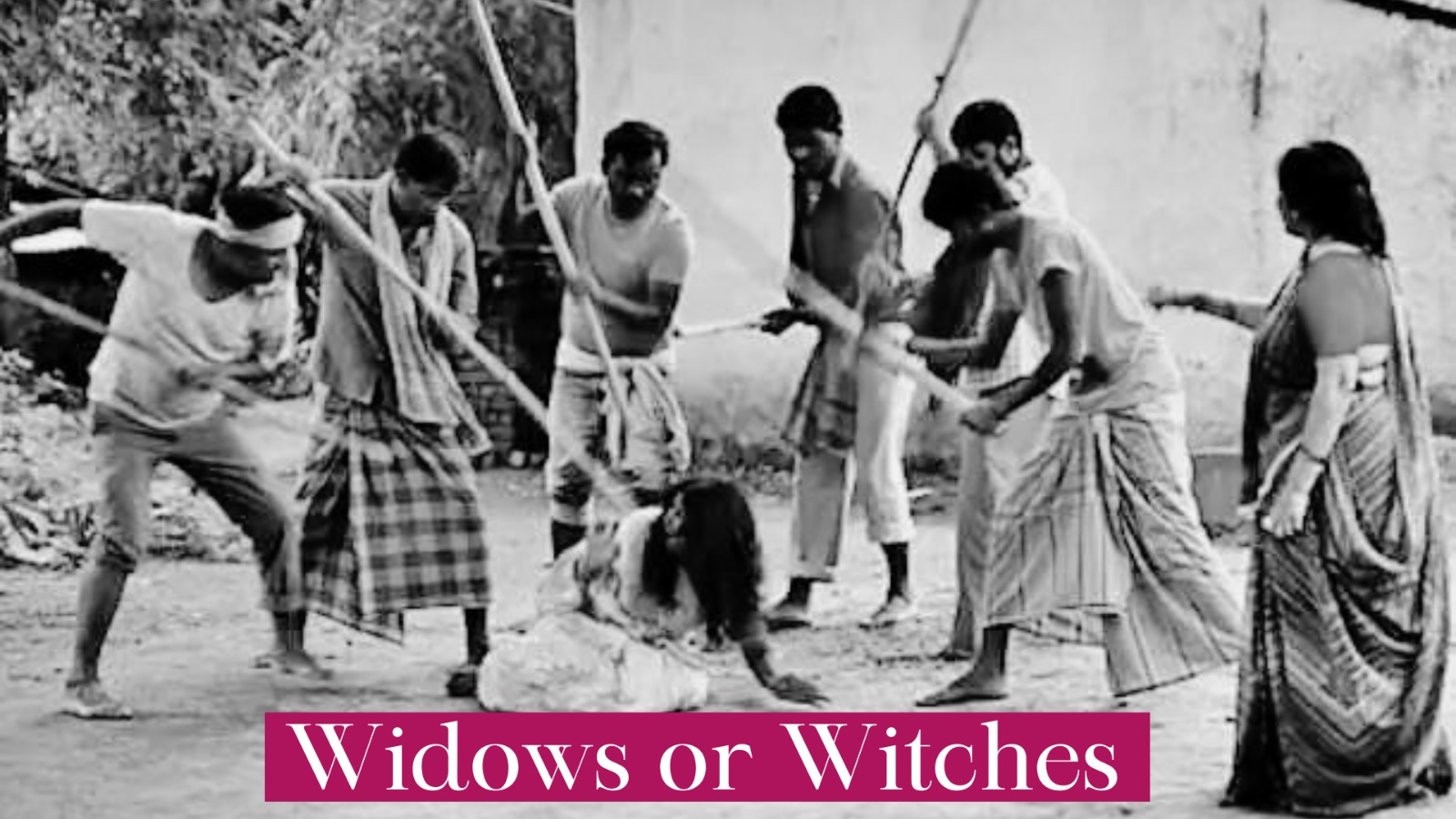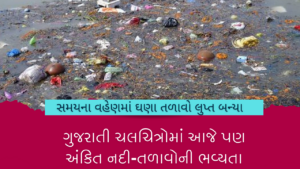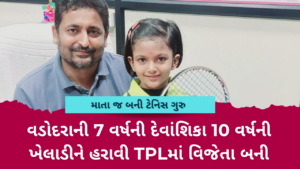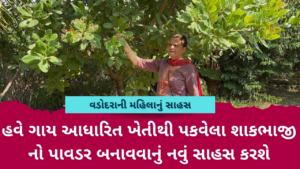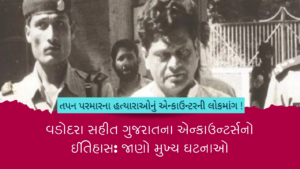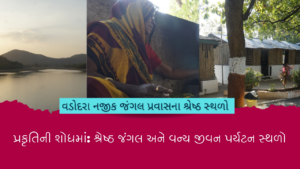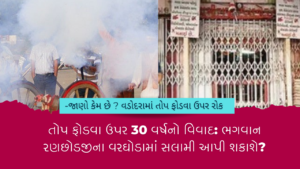–An Article by Poojan Patel
“I was about to end life. No one helped me, not even my son, relatives or villagers. But I did not lose hope and trusted in God,” said a 55-year-old widow, who did not succumb to ostracism after being declared witch.
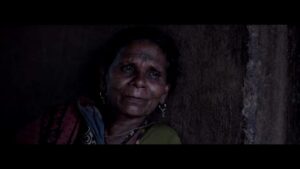 Anaben Pawar, an elderly tribal woman accused of witchcraft Dang. Through Ana’s story, we delve into a deep-rooted culture of patriarchy and examine one of the most monstrous attacks on women’s bodies in modern India: the witch-hunt.
Anaben Pawar, an elderly tribal woman accused of witchcraft Dang. Through Ana’s story, we delve into a deep-rooted culture of patriarchy and examine one of the most monstrous attacks on women’s bodies in modern India: the witch-hunt.
“Three women were beaten with burning logs, made to walk on fire”
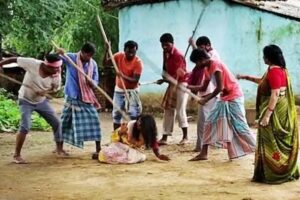 The above are just a few examples from the plethora of cases on witch-hunt. Dang district of Gujarat, where this dark and heinous practice has thrived for decades – the branding of women as witches. The recent revelation of 145 written complaints and the initiation of ‘Project Devi’ by law enforcement officials shed light on the pervasive nature of this archaic and inhumane belief system.
The above are just a few examples from the plethora of cases on witch-hunt. Dang district of Gujarat, where this dark and heinous practice has thrived for decades – the branding of women as witches. The recent revelation of 145 written complaints and the initiation of ‘Project Devi’ by law enforcement officials shed light on the pervasive nature of this archaic and inhumane belief system.
Over the past decade, Dang has witnessed a staggering 145 cases of women being dubbed as ‘dakan,’ a term loaded with stigma and condemnation. What is even more disheartening is that the victims, mostly uneducated women from economically vulnerable backgrounds, not only face verbal abuse but also physical torture under the guise of superstition. The police, in their pursuit of justice, have managed to trace 64 of these victims, offering them a glimmer of hope through intervention and support.
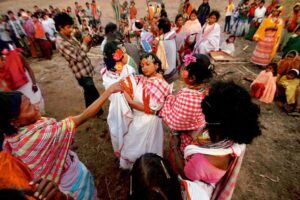 According to police sources, five villagers, Paruben Janabhai Pawar (50), her husband Janabhai Pawar (55), Anaben Pawar (45), Nachjibhai Bhisara (50), and Rajyuben Bhisara (51), were taken to the village temple on Friday night and subjected to physical torture by the exorcist while the other villagers looked on. The villagers were all suspected of practicing witchcraft.
According to police sources, five villagers, Paruben Janabhai Pawar (50), her husband Janabhai Pawar (55), Anaben Pawar (45), Nachjibhai Bhisara (50), and Rajyuben Bhisara (51), were taken to the village temple on Friday night and subjected to physical torture by the exorcist while the other villagers looked on. The villagers were all suspected of practicing witchcraft.
After being forced to walk on burning charcoal and having their hands and other body parts branded with a hot iron rod, the five fell to the ground and were brought home by their relatives.
“The exorcist with the help of some villagers had tortured the people who they claimed were carrying out witchcraft activities. We have arrested five people in this connection… We are also trying to identify the exorcist involved in the death of a woman,” said Sub-Inspector R C Vasava of Subir police station.
A startling revelation from the police analysis exposes a disturbing trend – over 60 percent of the victims are widows. The vulnerability of widowed women, already grappling with the loss of a spouse, becomes a breeding ground for these superstitious practices. ‘Project Devi,’ a commendable initiative by law enforcement, is the first step towards eradicating this evil from its roots.
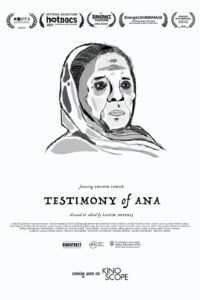 The documentary ‘Testimony of Ana,’ set in the heart of Dang district, further exposes the brutal reality faced by tribal women accused of witchcraft. Nominated for the 68th National Film Awards, the film sheds light on the lives of these women, living in fear and anguish due to archaic beliefs.
The documentary ‘Testimony of Ana,’ set in the heart of Dang district, further exposes the brutal reality faced by tribal women accused of witchcraft. Nominated for the 68th National Film Awards, the film sheds light on the lives of these women, living in fear and anguish due to archaic beliefs.
But Anaben was not the first couple he was supposed to meet. “I was going to meet a couple who were victims of a much more recent witch-hunt. But before I could reach them they breathed their last and this hit me hard,” said Sachin (Documentary filmmaker). “But only when I met her, did I really fathom the gravity of the situation. This is what forced me to capture her story in images and sound. Her story was covered by many big newspapers but I felt words wouldn’t do her justice,” he added.
To ensure sustained progress, police teams, known as ‘She teams,’ are assigned to stay in regular contact with the victims. These teams extend their reach beyond the immediate victims, meeting village elders and Bhuvas, relentlessly working to root out superstition from the community. In a significant move to combat social stigma, the police organized a public event to honor the victims, encouraging them to share their harrowing experiences. By providing a platform for these women to speak out, the police are actively working to dismantle the deeply ingrained prejudice that accompanies such accusations.
The root cause of this menace lies in the exploitation of superstition during times of prolonged illness or financial crisis in families. Bhuvas, acting as agents of these beliefs, declares women as witches, perpetuating a cycle of abuse and isolation. It is crucial for society to confront and condemn these orthodox practices. The cases of Tanki Rawat, who murdered her mother-in-law on charges of witchcraft, and the man whose wife was beaten to death on suspicion of being a witch, underscore the urgency of dismantling these beliefs.
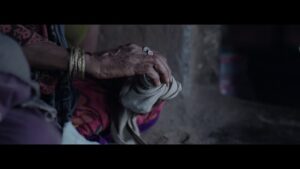 As we condemn these practices, it is essential to extend our sympathy and support to the victims. The police in Dang are not just enforcers of the law; they are advocates for change, standing by these women and offering a lifeline in their darkest hours.
As we condemn these practices, it is essential to extend our sympathy and support to the victims. The police in Dang are not just enforcers of the law; they are advocates for change, standing by these women and offering a lifeline in their darkest hours.
In breaking the chains of superstition, ‘Project Devi’ signifies a step towards a more compassionate and enlightened society. It is a collective responsibility to ensure that no woman lives in fear of being labeled a witch and that the dark cloud of superstition is lifted from the lives of those who have suffered for far too long.
“Testimony of Ana” Documentary by Sachin Dheeraj Mudigonda.
Gujarat: Tribal woman dies, four critical after ‘torture for witchcraft’ – Indian Express October 1, 2017

